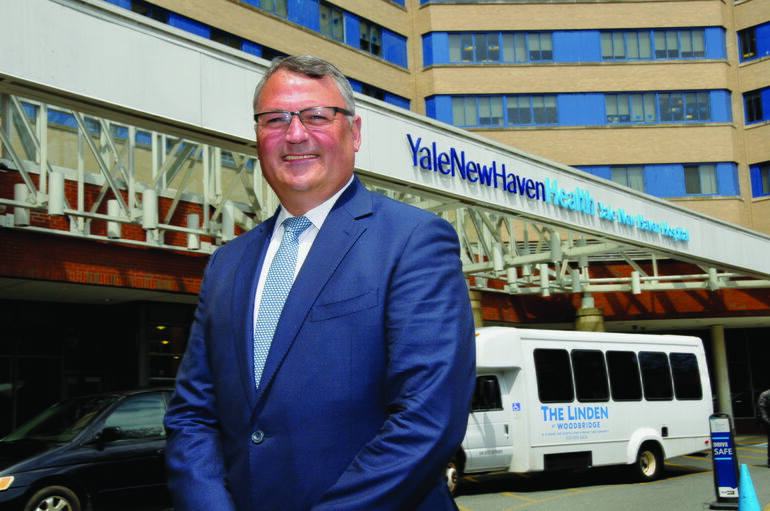Processing Your Payment
Please do not leave this page until complete. This can take a few moments.
-
News
-
Editions
-
- Lists
-
Viewpoints
-
HBJ Events
-
Event Info
- 2024 Economic Outlook Webinar Presented by: NBT Bank
- Best Places to Work in Connecticut 2024
- Top 25 Women In Business Awards 2024
- Connecticut's Family Business Awards 2024
- What's Your Story? A Small Business Giveaway 2024 Presented By: Torrington Savings Bank
- 40 Under Forty Awards 2024
- C-Suite and Lifetime Achievement Awards 2024
- Connecticut's Health Care Heroes Awards 2024
-
-
Business Calendar
-
Custom Content
- News
-
Editions
View Digital Editions
Biweekly Issues
- April 15, 2024
- April 1, 2024
- March 18, 2024
- March 4, 2024
- February 19, 2024
- February 5, 2024
- January 22, 2024
- January 8, 2024
- Dec. 11, 2023
- + More
Special Editions
- Lists
- Viewpoints
-
HBJ Events
Event Info
- View all Events
- 2024 Economic Outlook Webinar Presented by: NBT Bank
- Best Places to Work in Connecticut 2024
- Top 25 Women In Business Awards 2024
- Connecticut's Family Business Awards 2024
- What's Your Story? A Small Business Giveaway 2024 Presented By: Torrington Savings Bank
- 40 Under Forty Awards 2024
- C-Suite and Lifetime Achievement Awards 2024
- Connecticut's Health Care Heroes Awards 2024
Award Honorees
- Business Calendar
- Custom Content
Leadership Transition: O’Connor looks to stabilize finances and grow as new CEO of Yale New Haven Health
 PHOTO | GARY LEWIS
Chris O'Connor took over as CEO of Yale New Haven Health in late March.
PHOTO | GARY LEWIS
Chris O'Connor took over as CEO of Yale New Haven Health in late March.
He’s got the title, but the office had to wait.
Several weeks into his tenure as the CEO of Yale New Haven Health (YNHH), Chris O’Connor was still working out of the office he had occupied as president of the system, located in an administrative building at 789 Howard Ave.
His predecessor, Marna Borgstrom, had occupied the CEO’s sanctum for 17 years, and the space needed a bit of HVAC updating and other work.
“I’ll be in there soon enough,” O’Connor said. “But for now, it does kind of feel just status quo. I’m coming to work and doing the things I need to do.”
Those things include convening with the system’s board and taking meeting after meeting to establish his new relationships with stakeholders.
“I feel pretty confident about my ability to kind of keep everything going and make sure that we’re focused and successful,” O’Connor said.
His first overall goal is stability: Ensuring that the transition to new leadership happens smoothly, O’Connor said. Borgstrom, who made nearly $2 million a year in salary and benefits as of 2019, spent 43 years in the YNHH system and was recognized as a regional healthcare leader. O’Connor has got big shoes to fill.
“Marna Borgstrom had an indelible mark on this system and in our communities,” O’Connor said in an April interview. “It’s not trying to be Marna Borgstrom but trying to be Chris O’Connor and focus on what are our core elements as a health system.”
Key focus areas
Beyond the transition, O’Connor has outlined five core priorities for his first months as CEO: Maintaining and improving the quality of patient care, financial stability, continuing to grow the system, workforce issues and strengthening YNHH’s partnership with the Yale School of Medicine.
In terms of patient care, the impact of the COVID-19 pandemic continues to play out at Yale New Haven Health, with sicker patients staying longer in hospitals with more complex needs due to delays in treatment during the crisis. A dire staff shortage affecting all of the state’s hospitals makes meeting those needs even more challenging.
In addition, the volume of revenue-generating surgical and other procedures at the system’s five hospitals and 130 clinical sites that are part of its Northeast Medical Group have not recovered to pre-pandemic levels, worsening an ongoing financial squeeze — YNHH reported a $45 million loss in the month of February 2022 alone.
“That’s something that’s not sustainable for the long term,” O’Connor said. “Luckily, we’ve put a few dollars away in the bank to help support the needs that we have right now. But overall, we’re going to have to find our path to financial stability. That’s going to mean making some expense reductions, but also, how do we grow our services back to the levels where they were pre-pandemic?”
Adding to expenses are the incentives and programs needed to retain a systemwide workforce of 26,000, many of whom have been pushed to the limit and beyond during the COVID-19 pandemic. YNHH had 3,700 open positions as of April and recruitment challenges continue to limit growth across the healthcare sector.
“Their response and their continued resilience is humbling in terms of just how amazing they’ve been through the COVID-19 pandemic,” O’Connor said of the YNHH staff. To keep workers on the job even as pandemic concerns persist has been a challenge, he added.
“We’ve implemented short-term incentive plans that are expensive, but we’ve felt it critical that we staff the units in an appropriate manner,” O’Connor said. “We’re going to pull every rabbit out of the hat that we need to do to meet the needs. … It’s both trying to give everything that we can to the workforce, but also create a sustainable financial model for us.”
Leadership on statewide issues
Workforce issues and the pandemic’s ongoing impact are common challenges to all of the state’s hospitals, said Jennifer Jackson, CEO of the Wallingford-based Connecticut Hospital Association (CHA). As chairman of the group’s board, O’Connor took an active role from the start in organizing its response to the health emergency.
“He was a key part of our pandemic response,” Jackson said. “In Connecticut, we really did so much of the work collectively and continue to, sharing clinical best practices and sharing resources. That’s really reflected Chris’ leadership style — he’s very collaborative, very focused on the power of hospitals working together. So it’s been great.”
Part of O’Connor’s effectiveness was his experience earlier in his career of helping guide the Ochsner Clinic Foundation in New Orleans through the crisis of Hurricane Katrina in 2005.
“He’s battle-tested and experienced,” Jackson said.
O’Connor also brings to his new job years of a unique bond with the system’s home base, the city of New Haven. He was born at the Hospital of St. Raphael, where his mother worked as a nurse for 40 years.
After a stint working as an emergency room tech during college, O’Connor returned to St. Raphael’s in 2009 as president and CEO after success in executive roles at Ochsner and Caritas Christi Health Care, a Massachusetts-based Catholic health system.
Run by nuns and founded in 1907 as a Catholic alternative to Yale’s hospital, St. Raphael’s was struggling for survival in the 2000s as its costs increased and patient volumes fell. O’Connor worked behind the scenes to help bring about a merger with YNHH in 2012. He was named YNHH’s executive vice president and chief operating officer when the deal closed.
Eight years later, in October 2020, O’Connor was named president of the combined health system.
O’Connor’s rise through the YNHH ranks reflects the system’s commitment to hiring from within, former CEO Borgstrom told Becker’s Hospital Review shortly before she retired.
“We’ve made a big commitment to internal talent development,” Borgstrom said. “For people from the VP level up, what we’ve been doing is not just saying… who has a successor, but in order for these two or three people to be considered a successor for my role or any role, what’s their talent development plan need to look like?”
Singled out for praise at the time of both of his YNHH promotions was O’Connor’s role in engineering growth initiatives including an affiliation with New London’s Lawrence + Memorial Hospital in 2016 and the acquisition of Milford Hospital by Bridgeport Hospital in 2019.
Most recently, he played a key role in a bid to buy two health networks comprising three hospitals in the Hartford area now owned by Prospect Medical Holdings.
Now under regulatory review, the acquisition of Manchester Memorial, Rockville General in Vernon and Waterbury Hospital would allow for better care for patients across the state and future savings, O’Connor said.
“We think we can bring some scale to the table,” O’Connor said. “There are efficiencies that we’ve experienced when we’ve brought places like Lawrence + Memorial and St. Raphael’s into the health system that can decrease the costs.”
Expansion across the state
With the three-hospital deal, YNHH will also be edging more directly into the coverage area of Hartford HealthCare (HHC), seen as its principal competitor in the state. On its part, HHC in recent months has opened outposts in Yale’s backyard, including new urgent care centers in towns adjacent to New Haven.
O’Connor said he doesn’t consider HHC a competitor in the traditional sense, and that system’s CEO, Jeff Flaks, is a friend from graduate school.
“You can call him a competitor. But the missions are very much aligned,” O’Connor said, adding that the two systems have collaborated closely during the pandemic emergency.
Enhancing ties with the Yale School of Medicine and its world-class research will help YNHH compete across the state and beyond, O’Connor said.
The recent growth of both YNHH and HHC, however, poses a challenge to healthcare affordability in the state, said Lynne Ide of the Universal Healthcare Foundation, a nonprofit patient-advocacy group. Independent hospitals, which traditionally have provided lower-cost care, have dwindled from 31 operating in Connecticut in 2000 to only four in 2022.
“What that creates is huge bargaining power for the systems when they are negotiating contracts with insurance carriers,” Ide said. “It squeezes the patient, it squeezes the people who are paying the premiums and puts them in between the hospital network and the insurers vying with each other. Patients get stuck with higher prices.”
The effects of consolidation are exacerbated when independent physician practices are purchased by larger systems, Ide added, reducing patients’ options and silencing voices of dissent.
“These two big behemoths are throwing their weight around in the marketplace,” Ide said of YNHH and HHC’s expansions. “And we haven’t seen any evidence that that’s going to benefit consumers as far as prices go.”
Several bills aimed at “anti-competitive practices” in health care were raised by the legislature this year, with one targeting contracts between large systems and insurers that effectively shut out smaller players. St. Francis Hospital and Medical Center also sued Hartford HealthCare in January in federal court over its aggressive expansion, and patients have sued alleging higher costs in HHC’s coverage area.
Hartford HealthCare has said both lawsuits are without merit.
For O’Connor, the growth of large health networks improves care and access.
“A stronger Hartford HealthCare makes us a stronger Yale New Haven,” O’Connor said. “Healthy organizations across the state are better for all of our communities.”

2022 Giving Guide
This special edition informs and connects businesses with nonprofit organizations that are aligned with what they care about. Each nonprofit profile provides a crisp snapshot of the organization’s mission, goals, area of service, giving and volunteer opportunities and board leadership.
Learn more
Subscribe
Hartford Business Journal provides the top coverage of news, trends, data, politics and personalities of the area’s business community. Get the news and information you need from the award-winning writers at HBJ. Don’t miss out - subscribe today.
Subscribe
2024 Book of Lists
Delivering Vital Marketplace Content and Context to Senior Decision Makers Throughout Greater Hartford and the State ... All Year Long!
Read Here-
2022 Giving Guide
This special edition informs and connects businesses with nonprofit organizations that are aligned with what they care about. Each nonprofit profile provides a crisp snapshot of the organization’s mission, goals, area of service, giving and volunteer opportunities and board leadership.
-
Subscribe
Hartford Business Journal provides the top coverage of news, trends, data, politics and personalities of the area’s business community. Get the news and information you need from the award-winning writers at HBJ. Don’t miss out - subscribe today.
-
2024 Book of Lists
Delivering Vital Marketplace Content and Context to Senior Decision Makers Throughout Greater Hartford and the State ... All Year Long!
ABOUT
ADVERTISE
NEW ENGLAND BUSINESS MEDIA SITES
No articles left
Get access now
In order to use this feature, we need some information from you. You can also login or register for a free account.
By clicking submit you are agreeing to our cookie usage and Privacy Policy
Already have an account? Login
Already have an account? Login
Want to create an account? Register
Get access now
In order to use this feature, we need some information from you. You can also login or register for a free account.
By clicking submit you are agreeing to our cookie usage and Privacy Policy
Already have an account? Login
Already have an account? Login
Want to create an account? Register






0 Comments